PHOTO NEWS
Faces At The Pension Industry Leaders’ Retreat Held In Lagos






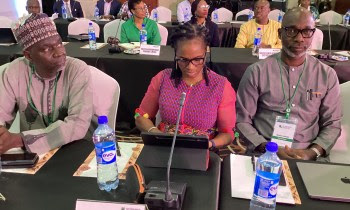









Central Securities Clearing System (CSCS) PLC, held its 31st Annual General Meeting (AGM) on Friday, May 9, where its shareholders approved a total dividend of ₦8.8 billion for the financial year ended December 31, 2024. This represents a 17.3% increase from the ₦7.5 billion dividend approved in the previous year. Shareholders will receive a dividend of ₦1.76 per share, up from ₦1.50 per share in 2023.
In his statement, Temi Popoola, Chairman of the Board of CSCS, highlighted the company’s strong financial performance in 2024. Stating that it underscores CSCS’s ability to translate revenue growth into robust bottom-line results despite the prevailing inflationary pressures and currency headwinds.
Mr. Popoola attributed this financial strength to increased capital market trading activity, favourable yields in the fixed income space, and foreign exchange gains, further supported by growing demand for CSCS’s expanding suite of services and solutions.
Looking ahead to 2025 and addressing potential shareholder impact, Mr. Popoola acknowledged the implications of current tariff tensions on global capital markets. However, he expressed optimism about Nigeria’s economic outlook, “We believe that the structural reforms already initiated, such as fiscal discipline, infrastructure investment, and improved ease of doing business, are laying the groundwork for sustained economic growth and enhanced investor confidence. Furthermore, tariff-induced adjustments may spur local industry development, fostering innovation and creating new value chains.”
Haruna Jalo-Waziri, Managing Director/CEO of CSCS PLC, in his statement to shareholders gave a comprehensive overview of the business environment and CSCS’s operational resilience. He noted the complexities of the global economy in 2024, and the specific challenges faced in Nigeria, including elevated inflation, naira devaluation, and rising borrowing costs. Despite these, he emphasized that “economic growth was driven by robust government spending, stronger services sector performance, and improved oil revenues, helped by favourable global oil prices and a depreciating naira.”
Mr. Jalo-Waziri stated, “Innovation continues to remain central to our strategy, enabling us to elevate service delivery, drive operational efficiency, and deepen market engagement. A recent milestone in this journey is the successful launch of the CSCS Chatbot, a tool designed to enhance customer experience through real-time, 24/7 responses to inquiries across our digital channels. In a similar vein, the rollout of the Debt Management Office (DMO) Portal marks a significant leap in strengthening market infrastructure. Developed in close collaboration with the DMO, the portal simplifies and digitizes the subscription process for FGN Savings Bonds, making it faster, more transparent, and user-friendly for a wider investor base.”
Mr. Jalo-Waziri reiterated the company’s commitment to drive innovation and build a more resilient and competitive financial market infrastructure.
At the AGM, shareholders also elected Dr. Aisha Muhammed-Oyebode and Mrs. Bola Adesola as Independent Non-Executive Directors, who were appointed since the last meeting. Additionally, shareholders re-elected Mrs. Chinelo Anohu and Mr. Ibrahim Dikko as Independent Non-Executive Directors.
Shareholders present at the AGM commended the company for its improved financial performance and the significant dividend payout, urging the Board and Management to sustain this positive trajectory.
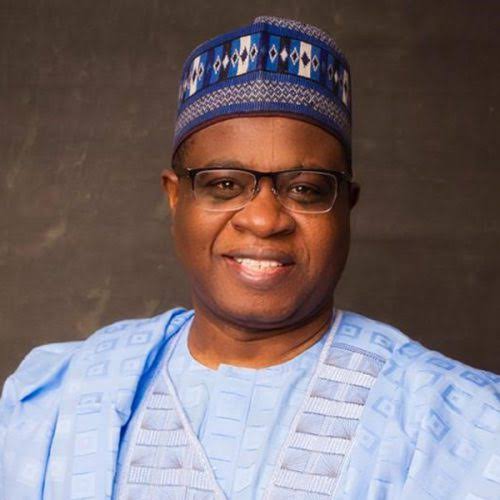
The Chairman, the Nigerian Exchange (NGX) Group is the Chairman of the SUPERNEWS Nigeria Annual Conference scheduled to hold on June 19th 2025 at Oriental Hotel, 3 Lekki Road, Victoria Island, Lagos at 10am.
The conference with theme, Power Of AI: Enhancing Efficiency And Customer Satisfaction For Better Financial Services Experience will have the Managing Director of Cowry Asset Management Limited, Mr Johnson Chukwu as its keynote speaker.
The Commissioner for Insurance, the National Insurance Commission (NAICOM), Mr Olusegun Ayo Omosehin and the Director-General, National Pension Commission (PenCom), Mrs Omolola Oloworaran will be Special guests of honour at the event.
Alhaji Umaru Kwairanga is an experienced investment professional with almost two decades of experience at the highest levels of the Capital Market, Banking and the Real Sector.
He possesses first and post graduate degrees in business administration, corporate governance and finance respectively.
He has also attended courses and training programs in fields relating to finance, investment and money market in reputable institutions including the Harvard Business School, New York Institute of Finance and the Wharton Business School.
Alhaji Kwairanga has professional certifications of the Chartered Institute of Stockbrokers (CIS) and the Certified Pension Institute of Nigeria and he is a member of the Abuja Commodities & Securities Exchange.
Alhaji Kwairanga has been Managing Director of a top notch stock broking firms for over a decade and a director in several blue chip organizations.
He is currently the Chairman of Ashaka Cement PLC, a prominent cement manufacturer in the North East of Nigeria and a quoted company on The Nigerian Exchange.
Alhaji Umaru Kwairanga as the Chairman of Ashaka Cement PLC, greatly improved the performance of the company and ensured that Gombe State Government and other local governments in Nigeria generated significant revenue from Ashaka Cement PLC through prompt payment of taxes and other statutory obligations.
The company has also been diligent in fulfilling its corporate social responsibility and maintaining excellent relations with its various stakeholders.
Alhaji Kwairanga is also the Group Managing Director/Chief Executive Officer of Finmal Finance Services Ltd, Director, Jaiz Bank PLC, Director, Central Securities Clearing System PLC, Chairman, Penman PFA Ltd and President, Certified Pension Institute of Nigeria.
He is a member of the Presidential Advisory Council on Industrial Relation, a Fellow of the Chartered Institute of Stockbrokers and a Fellow of the Certified Pension Institute of Nigeria.
According to the convener, SUPERNEWS Nigeria Publisher, Ngozi Onyeakusi, the choice of Alhaji (Dr) Kwairanga as the Chairman of the conference is as result of his vast knowledge and wealth of experience in the financial services sector.
The conference will equally feature a panel session which will include renowned experts like the Founder/CEO, ZER Consultating Africa, Mrs Adeolu Adewumi-Zer, the Fmr. Managing Director, Hilal Takaful Insurance Limited, Mrs Thaibat Adeniran, the National President, Bank Customers Association of Nigeria (BCAN) Dr Uju Ogubunka and the Head Financial Institutions Ratings, Augusto & Co, Mr Ayokunle Olubunmi.
The epoch making event will be bringing together other regulators, key stakeholders in the financial services, ICT sector, informal sector and small business owners.
Commenting on the theme of the conference, Onyeakusi said Artificial Intelligence (AI) adoption has the capacity to transform the Nigerian financial services sector.
AI technology, according to experts, has gained so much popularity in businesses that analysts put global business value earned through artificial intelligence at $3.9 trillion in 2022, from $1.2 trillion in 2018.
The technology is believed to be capable of facilitating financial inclusion, thus bridging the gap between the masses and financial services, helping to bring these services closer to the people seamlessly.
AI offers an unprecedented opportunity to reach more customers, reduce operational costs, and enhance customer experience.
This confab is a learning opportunity designed to enhance awareness, deepen understanding of participants on the imperative and use of AI in rendering banking, capital market, pension and insurance services, better, cheaper, faster and conveniently.
… Aims At 20M Against 10m
Amaka Obiefuna
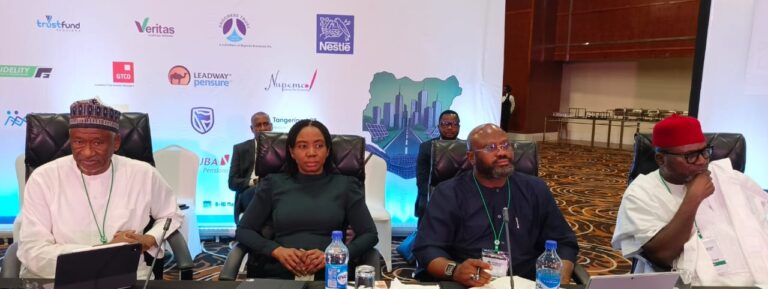
The National Pension Commission (PenCom) has mapped out strategies to double Pension Contributors from the already attained 10.65 million to 20 million by the end of year 2027.
The Director General of PenCom, Ms. Omolola Oloworaran, announcing this on Saturday at the Pension Industry Leaders’ Retreat in Lagos said the commission plans to meet the target through the expansion of Personal Pension Plan (PPP) formerly known as MIcro Pension Plan (MPP), engagements with stakeholders, and enforcement of pension compliance certificates, especially by state governments amongst other initiatives.
Noting that pension growth is essential for economic growth and development, she said the industry expects a 50 per cent growth in this regard and disclosed that as at February 28, 2025 the pension fund assets was N23.27 trillion and Retirement Savings Account (RSA) holders 10.65 million.
According to Oloworaran the retreat has provided opportunities for the industry to adopt new strategies, while also stating that the resolutions reached will be fully implemented before the end of first quarter 2026.
…. Initiates Collaborative Research & Development (R&D) Pilot Programme to Foster Industry-Academia Linkages
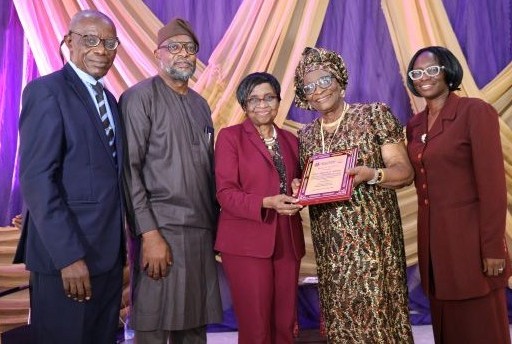
The Director General of the National Agency for Food and Drug Administration and Control (NAFDAC), Prof Mojisola Adeyeye, has called for a synergy between the nations pharmaceutical manufacturers and Nigeria universities in the development of new medicines and vaccines to reduce the overdependence on imported medical products.
According to a press release by Sayo Akintola , Resident Media Consultant NAFDAC, describing President Bola Tinubu’s recent ban on the importation of readily available products in Nigeria as the needed elixir for the growth of the local industry, Prof Adeyeye urged the nations academia and pharmaceutical industry to forge a partnership in Research and Development to enable the development of new products, including medicines and vaccines, that can address specific healthcare needs in Nigeria.
The DG gave the admonition while speaking on Industry, Regulatory, and Academia: The Future of Pharmaceutical Research and Development in Nigeria is Now at the 38th edition of Prof Victor Olufemi Marquis Memorial lecture, organised by the Faculty of Pharmacy, Obafemi Awolowo University OAU, lle-Ife, Osun State.
According to the Guest Lecturer, universities are well-positioned to develop skills, and to transfer knowledge, and technology to the industry, adding that universities are a hub for creating new enterprises, and their roles in knowledge and technology innovation tend to become more diverse.
She averred that academiaindustry linkage is essential for any nation to survive because it creates a formal platform for joint planning and implementation of mutually beneficial ties to both sides.
Prof Adeyeye, who said that NAFDAC already has relationships with many universities in Nigeria, added that such collaborations would also create an opportunity for the university and students to have experiential learning in the manufacturing and service industry.
Prof Adeyeye described the Academia-Industry relationship as the lifeblood of the nation’s economic growth, adding that it also increases competitiveness and the development of new products.
She added that once economic growth and industry expand, societal challenges, especially unemployment, will be reduced, GDP will increase, and quality of life will improve.
She disclosed that over the last seven years, the Nigerian pharmaceutical industry has grown significantly, driven by increasing demand for healthcare solutions, strengthening the regulatory system, and other government initiatives, such as the Executive Order announced by President Bola Tinubu in 2024.
NAFDAC conducted a study on the top five imported pharmaceutical products and the top five products manufactured locally.
The results revealed that the top five products we imported were the same top five that were locally produced. It didnt make sense to continue importing these products, so the Agency enforced the Five Plus Five Regulatory Directive.
This means the first registration of an imported product that is part of the top five gives authorisation to sell for five years, and the next five years will be the last registration cycle, at the end of which the product must be manufactured locally.
About 30 per cent of new or re-built local manufacturing companies in Nigeria now are a result of the Five Plus Five Regulatory Directive, she said.
The NAFDAC boss maintained that the Agency is setting the stage for pharmaceutical R&D with the nations vast and untapped potential, stressing that global trends emphasise local innovations leading to self-sufficiency in healthcare. She insisted that we must be proud of what we produce in Nigeria, as our products are now of better quality than what they used to be because of the regulatory system strengthening.
NAFDACs role is pivotal in enabling this transformation and the time to build a robust R&D system for a healthier Nigeria is now, she said, adding that the COVID-19 Pandemic and ongoing global business realignment are happenings that should teach us lessons to not be too dependent on other countries for commodities that can be produced in country while maintaining general global trade collaborations.
She reiterated that the country will undoubtedly import some drugs, but we should detach ourselves from our addiction to donations and handouts from other countries, as God has given us so much talent that is being wasted. She said that R&D is not a luxury but a necessity for national health security and economic growth.
To jumpstart the process, Prof Adeyeye disclosed that NAFDAC plans to initiate a pilot R&D collaboration programme with participants drawn from the universities and a select group of Nigerian pharmaceutical manufacturers.
She said manufacturers would choose their preferred university partners on specific R&D projects, subject to their needs or gaps. She stressed that the Academia-Industry linkage must be based on legally endorsed confidentiality agreements and Memorandum of Understanding.
She told the very excited academic audience that the pilot programme, which she would oversee at arms length to avoid any conflict of interest where the product of the industry-academia collaboration comes to the Agency for regulatory approval. The program according to the Director General could be scaled up in the future.
She said she would work closely with the CEO of the Nigeria Natural Medicines Development Agency (NNMDA), who is also very active in the National Association of Pharmacists in Academia (NAPA), to oversee the selections from the universities to ensure that the collaboration will be productive.
The careful selection is to ensure that the identified faculty, which will be narrowed down to one or two researchers per university, has the experience to work with the industry to translate the research into a product, solve a pharmaceutical problem, and focus efforts on return on investment that will be made by the industry.
She gave the example of company A identifying a product with soon-to-expire patent protection, which the company can work with university researchers to reformulate a sustained-release version of the product to enhance patient compliance.
She mentioned possible areas of collaboration between the industry and academia, especially regarding clinical trials, or bioequivalence studies where the universities can partner on patient recruitment, trial coordination, and ethical approvals. Joint development of indigenous vaccines to fight endemic diseases in the West African region, like Lassa fever, should be the preoccupation of the universities.
She mentioned that another channel of participation or collaboration with vaccine manufacturing is technology transfer and local fill and finish of vaccines, adding that there are so many opportunities to collaborate with universities regarding vaccine manufacturing. She noted that the skill set required can only be addressed through effective and innovative collaboration between academia and industry.
The role of R&D in Nigeria cannot be overemphasised, especially in increasing local production of pharmaceuticals, reducing import dependence, creating jobs, improving healthcare outcomes, reducing disease burden, better access to medicines, improving targeted therapy, and treatment options, she said.
Because Nigeria is developing R&D clusters and creating an integrated innovation ecosystem, she said its time to supercharge its academic research community and the livelihoods of millions, hence national development.
Prof Adeyeye stated that Nigeria has the potential, stressing that We have the partnerships and the regulatory framework behind to back all this up. By focusing our efforts and leveraging collaboration, we can unlock Nigerias R&D capabilities.
She maintained that the pilot programme is the critical first step, as she urged academia to join hands with industry and NAFDAC to build a future where pharmaceutical innovation thrives in Nigeria, for Nigeria.
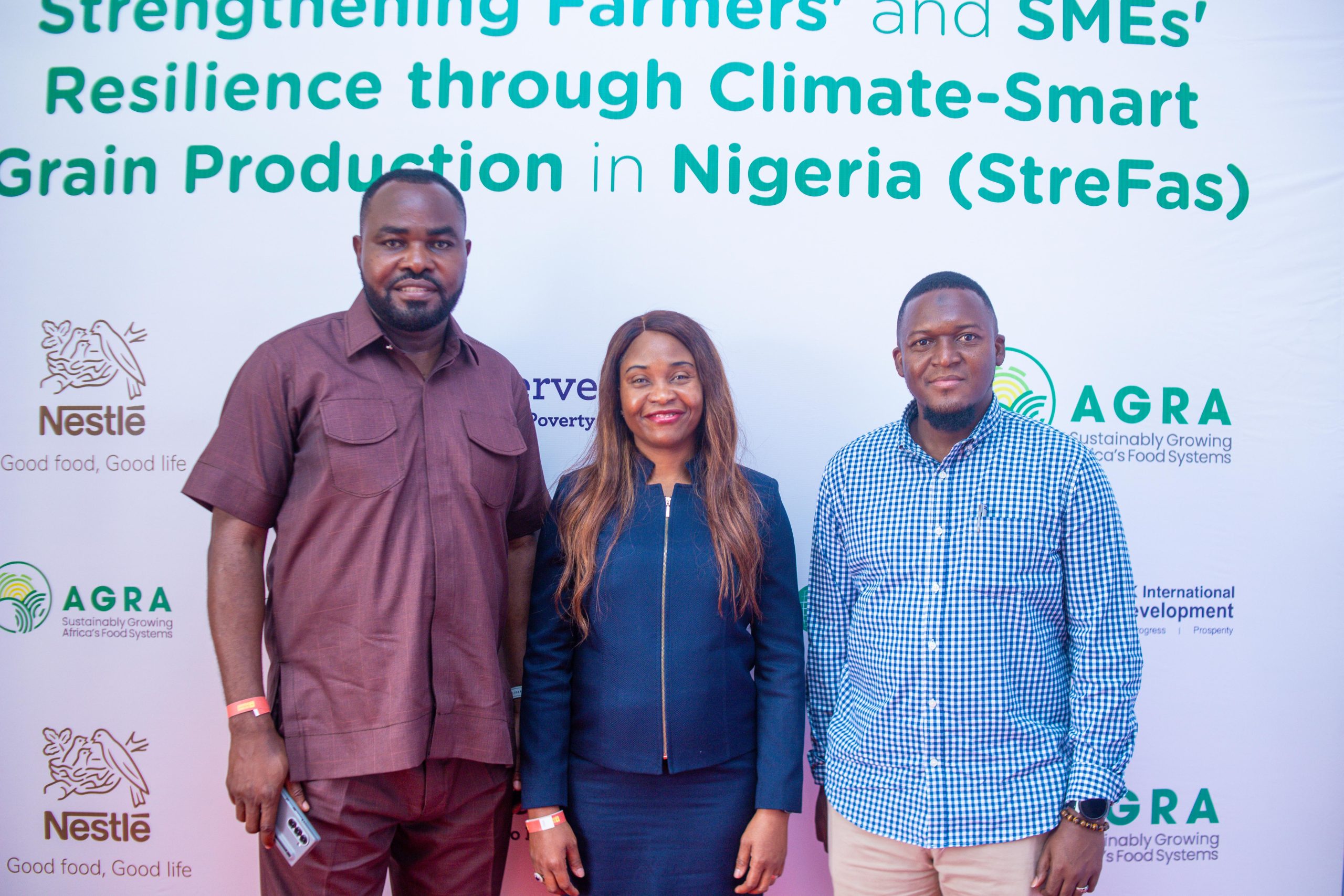
In a bold step towards building a climate-resilient agricultural sector, AGRA, Nestlé Nigeria, and TechnoServe have launched the Strengthening Farmers’ and SMEs’ Resilience through Climate Smart Grain Production and Accessing the Structured Markets (StreFaS) initiative in Nigeria.
StreFaS is a three-year initiative, funded by AGRA and Nestlé, that will run from June 2024 to October 2027. The program aims to support 25,000 smallholder farmers and eight aggregators across Kaduna and Nasarawa States, promoting sustainable production of maize, soybean, rice, and sorghum. It focuses on integrating regenerative agriculture into every step of the value chain, with particular emphasis on empowering youth and women.
StreFaS will help improve soil health, lower greenhouse gas emissions, increase biodiversity, and strengthen economic resilience. Furthermore, the program connects smallholder farmers to formal markets, including Nestlé’s supply chain, enabling them to receive premium prices for climate-smart produce.
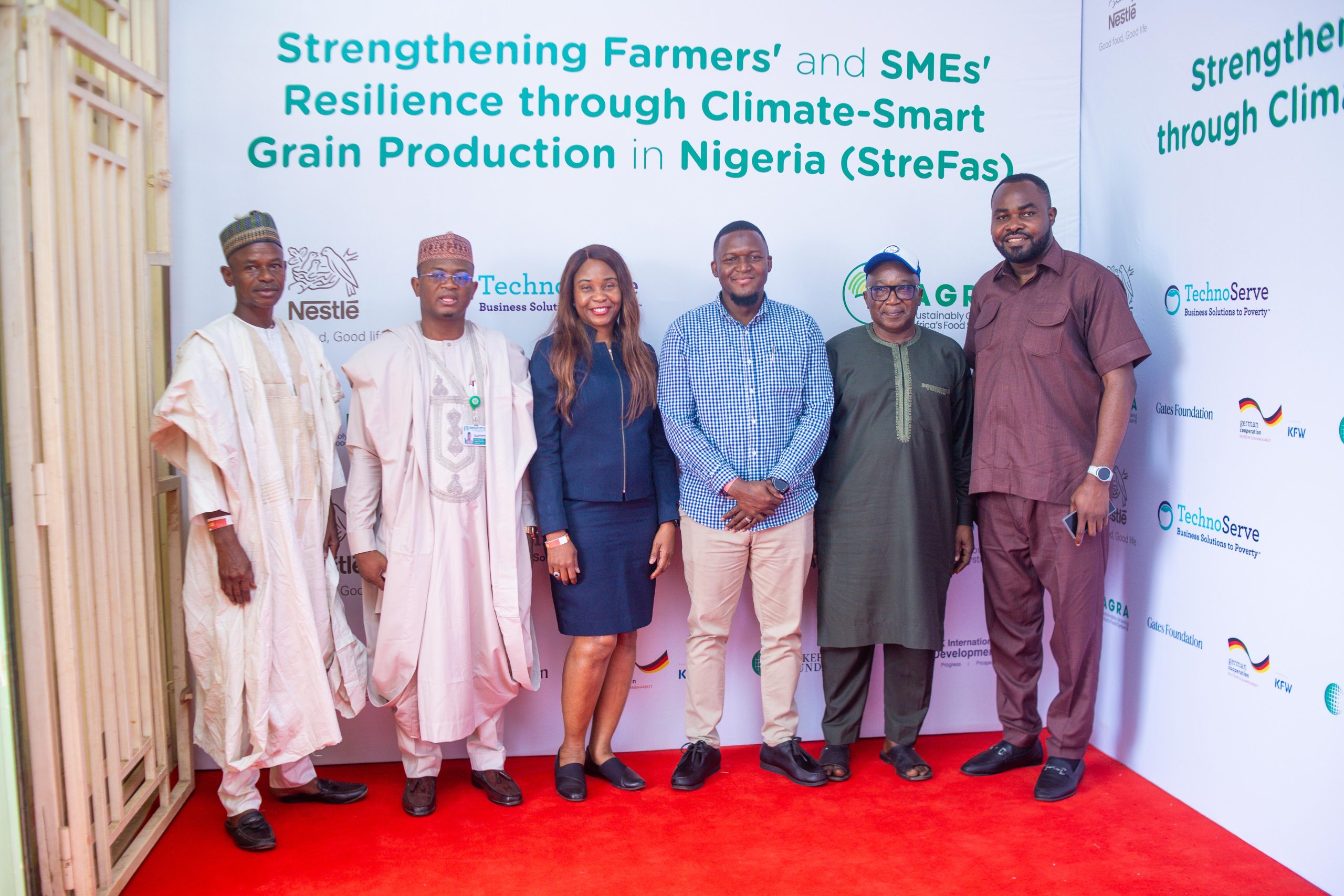
The launch event, held in Zaria, Kaduna State, brought together high-level representatives from the government, development partners, private-sector stakeholders, and members of the media. The event featured keynote speeches from implementing partners, a case study from a climate-smart farmer, and a powerful project overview underscoring the initiative’s role in transforming Nigeria’s grain value chains.
In her welcome address, Mrs. Adesuwa Akinboro, Country Director of TechnoServe Nigeria, described the STREFAS initiative as a transformative step for Nigeria’s agricultural sector. “This project represents a bold commitment to supporting smallholder farmers and agribusinesses with the tools, knowledge, and market access they need to thrive in the face of climate change. STREFAS is not just about boosting yields—it’s about regenerating our soils, restoring dignity to farming, and creating a more inclusive and sustainable future for communities across Kaduna and Nasarawa States,” she said.
“We are proud to co-lead this initiative that puts farmers first — not just by introducing new practices, but by rebuilding the very ecosystems that sustain farming — core to AGRA’s approach to sustainable and resilient food systems transformation,” said Dr. Rufus Idris, AGRA’s Country Director for Nigeria.
Speaking on Nestlé’s commitment, Mr. Wassim Elhusseini, CEO of Nestlé Nigeria, added:
“At Nestlé, we believe that good food starts with high-quality ingredients and the well-being of the people who produce them. Our partnership in this initiative underscores our commitment to sustainable sourcing and decarbonizing our value chain. Globally, we aim to source at least 50% of our key ingredients from farmers practicing regenerative agriculture by 2030. With an investment of over $1,000,000 in this project over the next three years, we aim to contribute towards establishing regenerative agriculture as the standard in the food industry, addressing both environmental and social priorities holistically.”
Speaking at the event, the Commissioner, Ministry of Agriculture, Kaduna State, Honourable Murtala Muhammad Dabo stated “This launch marks a significant milestone in our journey towards a more sustainable agricultural future. I commend TechnoServe and its partners for their dedication to promoting climate-smart agriculture practices in Kaduna State. Let us continue to work together to empower farmers, improve food security, and build a climate-resilient agricultural sector. I wish you all the best in this endeavor.”
On the sidelines of the launch, MAGGI celebrated the Soya Bean farmers who were part of the regenerative agriculture pilot project. One of the farmers Engineer Lawan Abdul, shared a compelling testimonial.
“Since I started adopting the strategies, we were taught in this project, my yields have increased by 100%. This was very surprising and encouraging for me. I am very happy with the outcome and thank the project partners and MAGGI for bringing this opportunity to us.”
The StreFaS initiative is aligned with AGRA’s 3.0 Country Strategy, Nestlé’s 2030 Climate resilience sourcing goals, and TechnoServe’s proven expertise in building market-driven solutions for rural prosperity.
By connecting smallholder farmers to better tools, markets, and capital, StreFaS will scale regeneration in ways that are profitable and empowering. As implementation continues, the program will deepen collaboration with government, private sector, and civil society partners to sustain scalable change across Nigeria’s grain value chain.
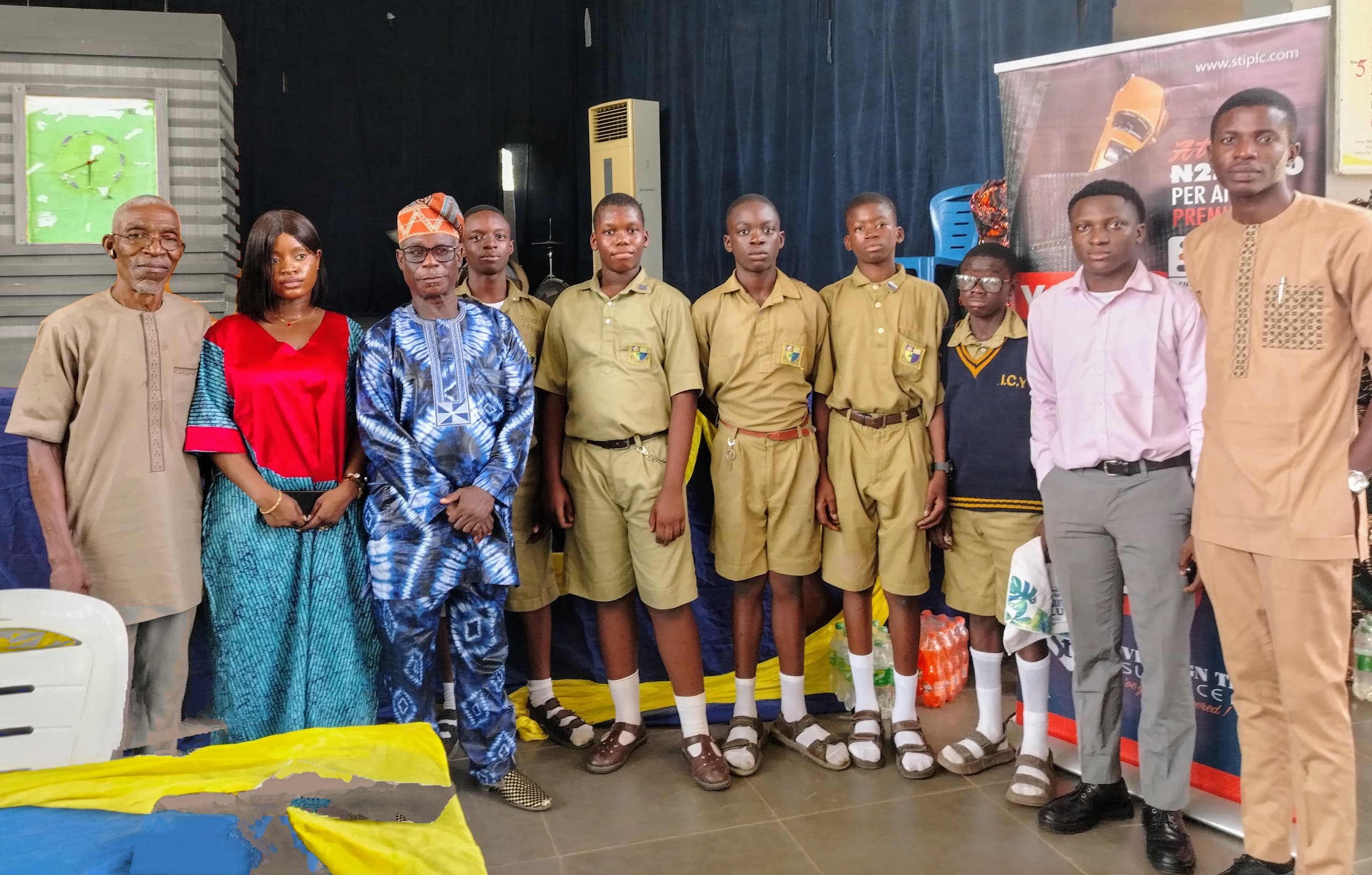
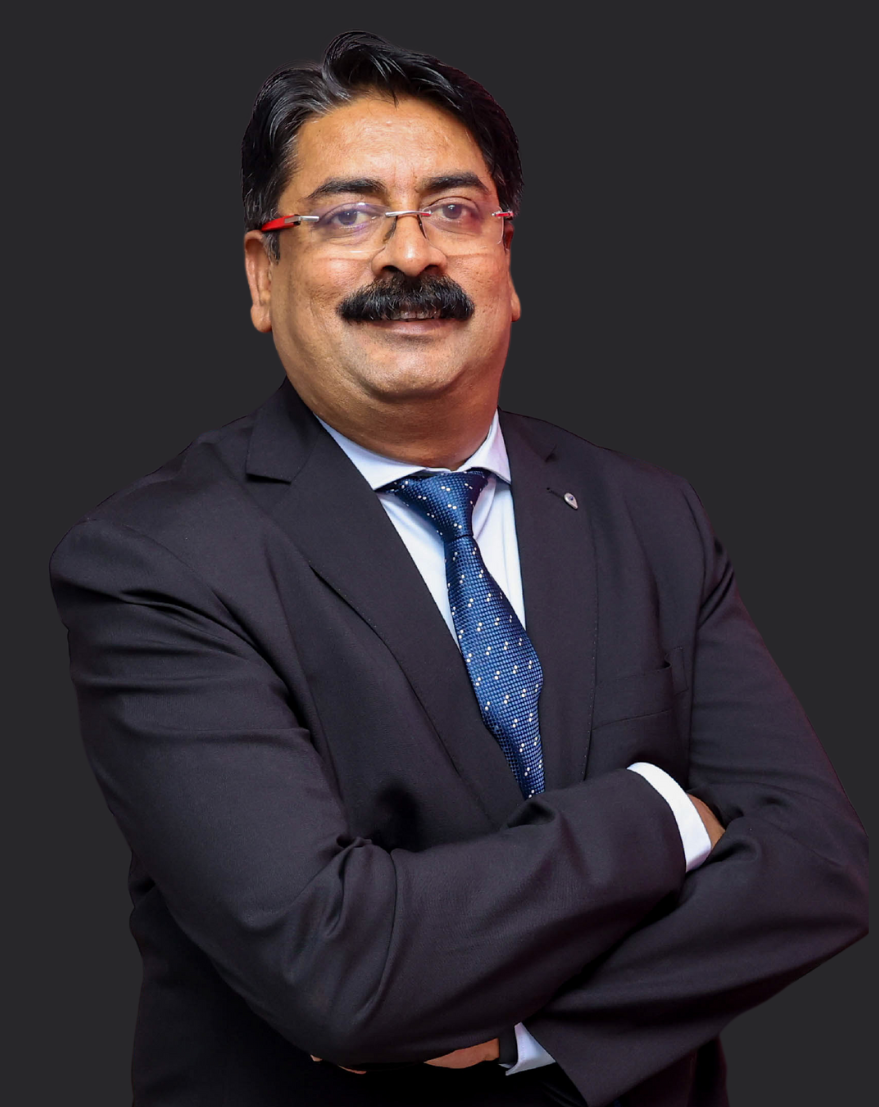

 A new chapter is opening in Nigeria’s transportation sector as Ecowaka Limited (Ecowaka), an indigenous electric vehicle (EV) company, launches its three-wheeled electric vehicles (keke).
A new chapter is opening in Nigeria’s transportation sector as Ecowaka Limited (Ecowaka), an indigenous electric vehicle (EV) company, launches its three-wheeled electric vehicles (keke).
This innovation provides an affordable and eco-friendly solution to enhance urban mobility, supported by advanced battery swapping and charging infrastructure.
With rising fuel price, increasing urban congestion, and the urgent need for climate-conscious alternatives, Ecowaka is positioning itself as a pioneer in Nigeria’s electric mobility space, delivering sustainable, efficient, and cost-effective transport options tailored for everyday Nigerians.
“We are building more than electric vehicles; We’re building a cleaner future, creating jobs, and giving drivers and commuters a smarter alternative,” said Prince Ojeabulu, Founder and CEO at Ecowaka. “Our mission at Ecowaka is to drive innovation that not only redefines transportation but also contributes to a cleaner planet. This is about local innovation that solves real problems.”, he added.
Ecowaka adopts an inclusive model for electric mobility, providing access to both brand-new electric tricycles from ₦2.6 million and conversion solutions for existing petrol-powered kekes from ₦2.3 million. This approach supports a gradual and affordable transition for operators already in the system. With a supporting infrastructure of charging and battery-swap stations, Ecowaka’s model is designed to minimize downtime and reduce long-term operating costs.
The electric keke is designed to meet Nigeria’s transportation needs, offering high performance and reliability. The vehicles are equipped with an 8kWh battery that allows for a top speed of 50 km/h and a travel range of up to 120 km per charge. These vehicles can carry three passengers along with the driver, providing a practical solution for both personal and commercial transport. Charging is efficient with a 5-minute battery swap and 45-minute station charging. The vehicle also includes smart features like a digital display, vehicle tracking, USB charging port, and mobile app integration. Contributing to zero emissions, operators can save up to 60% on fuel costs.
Already gaining attention from key players in tech, transport, and environmental advocacy, Ecowaka is building strategic partnerships to scale across major cities in Nigeria. With its commitment to local assembly, driver training, and tech-driven mobility solutions, the company is poised to set the pace for clean transport across Africa.
Ecowaka is an indigenous Electric Vehicle (EV) brand focused on driving sustainable transportation in Nigeria. With a mission to deliver accessible, eco-friendly transport solutions.
 The United Bank For Africa, UBA’s Ramon Nasir, Head, Media and External Relations, was one of the top winners at the 6th Edition of the Industry Summit 2025 organized by The Industry Newspaper, a West Africa’s leading brand marketing publication.
The United Bank For Africa, UBA’s Ramon Nasir, Head, Media and External Relations, was one of the top winners at the 6th Edition of the Industry Summit 2025 organized by The Industry Newspaper, a West Africa’s leading brand marketing publication.